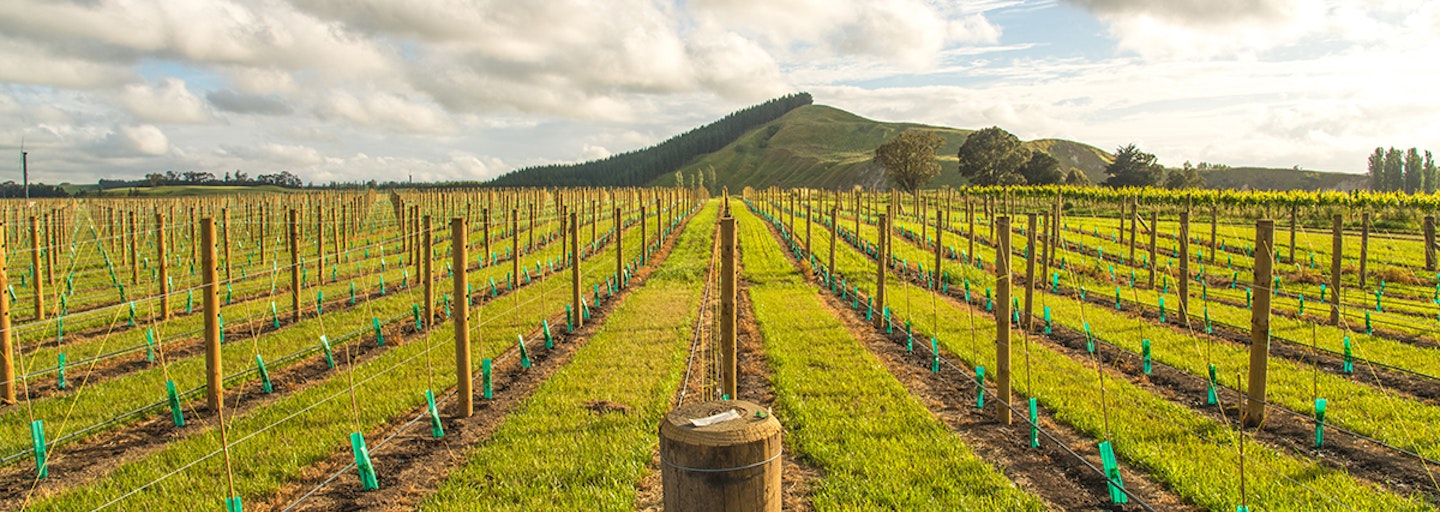Sustainable winegrowing with compost
Understand the benefits of sustainable winegrowing and how you can reduce the use of fertilisers and achieve better ROI with compost application.
Sustainable winegrowing in New Zealand embodies a commitment to stewardship of the land. It is a set of practices that create security for generations to come. In the picturesque landscapes of New Zealand's wine regions, this means embracing these practices that are environmentally conscious with efforts to reduce our carbon footprint.
Sustainable wine is not wine that has been made in a unique way, it is wine that has been produced in a responsible way. Every decision in the vineyard is made with the future in mind. When it comes to sustainable wine growing from a soil health perspective, it is about utilising and repurposing natural resources to our advantage and reducing our reliance on chemical fertilisers.
Download the horticultrists guide to soil health.
The benefits of sustainable winegrowing
Compost is a natural and organic growing media that can reduce environmental impact, nurture biodiversity, and pave the way for a more sustainable future in wine production.
Environmental preservation
Consumer demand
Resilience to climate change
Quality and consistency
Incorporating compost into your vineyard management plan can help to reduce environmental impact and support biodiversity in a natural way.
From a sustainability perspective, compost, being free from toxins, is a much more environmentally friendly option and a way to future-proof your growing operations for a more sustainable future.
Positive outcomes gained from using organic certified compost:
Improvement to soil structure
Improvement in soil composition
Increased organic matter
Increased total carbon
Reduce soil pollutants
Azwood's Organic Compost
Azwood has a range of compost solutions that are BioGro certified organic which benefits commercial organic growers looking for organic inputs to increase soil health and organic matter.
The power of soil health
The saying goes "Healthy vines make wealthy wine" but without healthy soil, your vines will suffer.
As a grower, have you considered the long-term goals of your vineyard? Although chemical fertilisers get fast short-term results, is it a sustainable solution to get the most out of your soil long-term?
Enhancing nutrient levels and biological diversity can be achieved through the application of compost. By returning organic matter to the soil in the form of compost, the reliance on fertilisers can be reduced.
Healthy soils are key to healthy vines.
“It is important to establish a nutrient maintenance budget based on appropriate organic inputs to replace nutrients that are removed through harvesting” - OWNZ
Additional benefits of Azwood® product range
Disease prevention
Pest control
Weed control
Undervine mulching
Incorporating Compost into Vineyard Management
Compost application can be extremely beneficial to your vineyard's soil health but to get the most out of your investment you need to understand when, where, and how to apply it effectively.
Steps on where to start when applying compost
The decision to start your sustainability journey by incorporating compost into your vineyard management is not always an easy one, but we are here to support you. Our goal is to provide you with insights into the experiences and benefits of other growers who have already seen results with compost.
Request and on site consultationSuccess stories
Learn more
- The BioGro logo guarantees that a product is made without animal testing, genetic modification and the use of synthetic pesticides so when you see this logo you know it’s a genuine organic product that is tested throughout the various stages of the growing process.What are the benefits of a BioGro certified compost?
- Starting to use compost on a commercial scale is more than just a choice, it's an investment in your soil's future. Compost enriches soil structure, holds nutrients, and promotes microbial activity, helping to achieve your sustainability goals as well as produce thriving crops year after year.How to start using compost

Follow us
More from Azwood
Connect with us on social media to learn more and be the first to hear our latest industry updates


